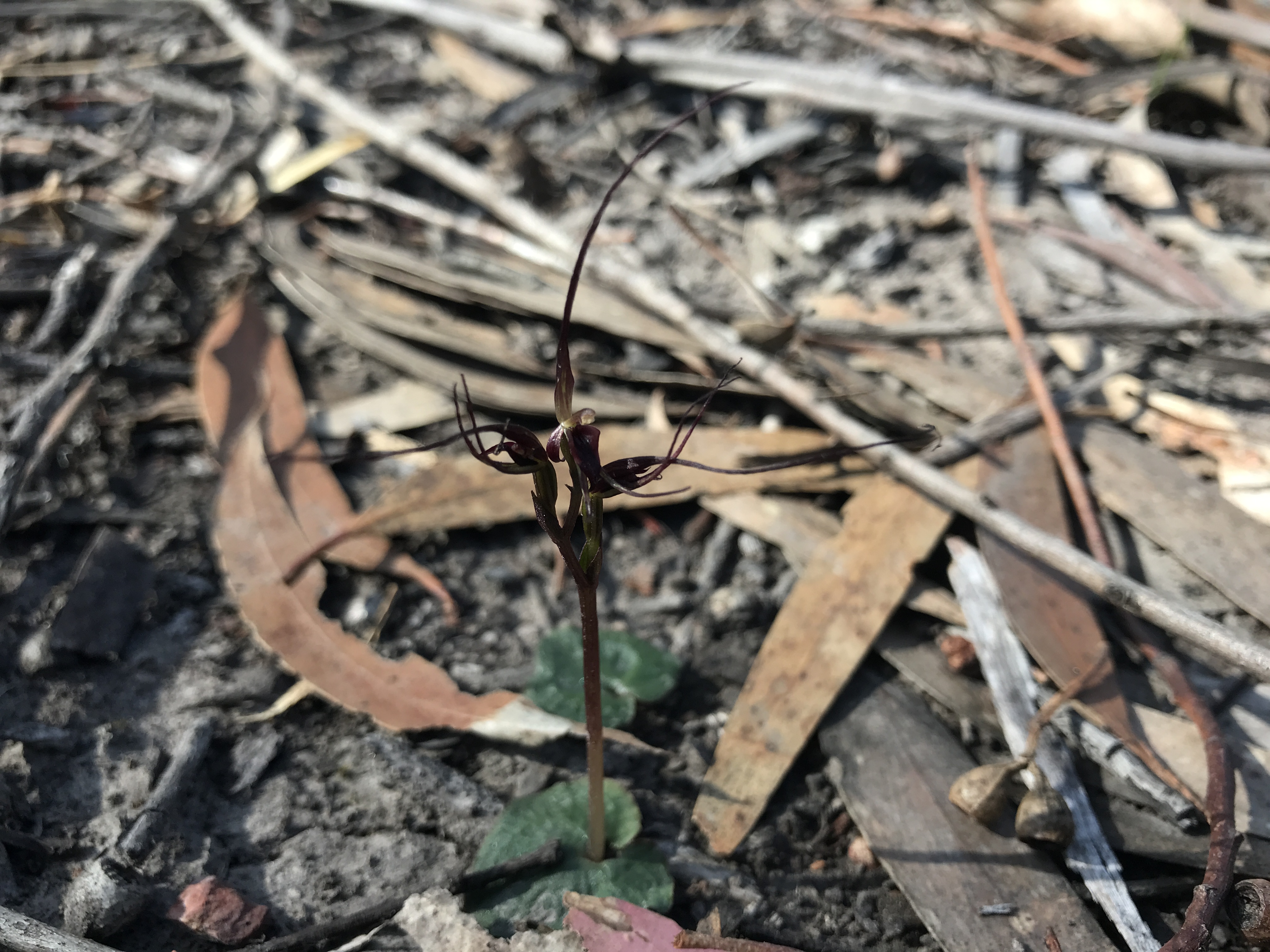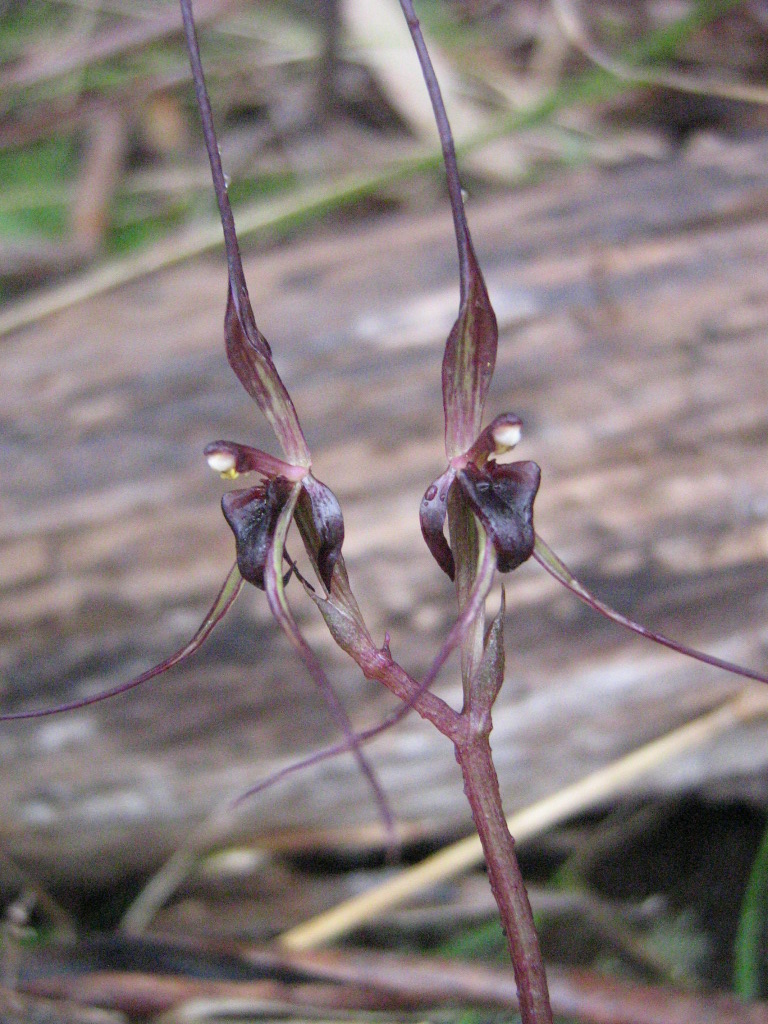Scientific Name: Acianthus caudatus
Common Name: mayfly orchid
Family Classification (Clade): Monocots
Family: Orchidaceae
Form Description: Often forms quite massive colonies, but not all plants produce flowers. Heart shaped leaves, dark green above and purple beneath.
Height (m): 0.04 – 0.25
Flowers: Slender raceme of small dark purplish flowers with long filamentous sepals.
Fruit: Papery capsule
Municipality
Plant Communities
Habitat Notes
Sheltered sites in heathland and heathy open eucalypt forest, sheoak woodland and teatree scrub.
Site Tolerance
Dry, Moist, Shady
Soil Tolerance
Clay, Loam, Sandy, Well-drained
Frost Tolerance
Tender
General Notes
A fly from the genus Mycoma pollinates this species.
Propagation Calendar
-
Flowering Month
Jan Feb Mar Apr May Jun Jul Aug Sep Oct Nov Dec -
Seed Collecting Month
Jan Feb Mar Apr May Jun Jul Aug Sep Oct Nov Dec -
Sowing Month
Jan Feb Mar Apr May Jun Jul Aug Sep Oct Nov Dec -
Cutting Month
Jan Feb Mar Apr May Jun Jul Aug Sep Oct Nov Dec
Propagation Method
Seed Information
Seed Treatment Notes
Orchid seeds are very minute yellow, brown or blackish dust-like particles. Orchid seeds are produced within a capsule that splits at maturity and releases thousands to millions of seeds. Dispersed by wind and water and only germinate following infection of the embryo by a suitable mycorrhizal fungus. Very few seeds become mature plants. For more information see Jones, Wapstra, Tonelli, Harris (1999): The Orchids of Tasmania.

